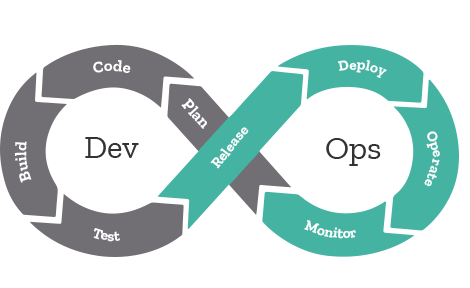DevOps Engineers are IT professionals who work with software developers, system operators (SysOps) and other production IT staff to oversee code releases. DevOps Engineers integrate developers and operations teams to improve collaboration and productivity. DevOps Lifecycle can be broadly broken down into five continuous stages : Development, Integration, Testing, Monitoring, and Virtualization and Containerization.
To get a better idea about this job and the skills it requires, it's time to analyze the job market trends and insights.
Market insights : (Powered by Riminder)
About Riminder :
At Riminder, We provide business with an AI-powered infrastructure to assess, score and rank talent pools.
Insights :
Through our analysis, we gathered information about DevOps Engineers around the globe, in this article we try to present some of the most relevant insights we drew.

There are many skills for a DevOps Engineer to learn, and the list changes almost every year with the fast evolution of technologies. Here below we try to explore some of the most common skills for these profiles.
- Linux: It is an open source cross-platform operating system based on Unix that can be installed on PCs, laptops, netbooks, mobile and tablet devices, servers, supercomputers and more. DevOps Engineers often have to provision their company's infrastructure and automate it, and since most companies have their environment on Linux, it is important to master Linux fundamentals.
- Java: it's a general-purpose computer programming language that is concurrent, class-based, object-oriented, and specifically designed to have as few implementation dependencies as possible. Java is a dynamic language that allows developers to run their programs on all supported platforms without the need for recompilation. DevOps Engineers are always searching for maximum flexibility and the ability to manipulate the hardware in straightforward and profound ways, and this can be done effectively using Java.
- MySQL: It's a free-to-use, open-source software that facilitates effective database management. It is a stable, reliable and powerful solution with advanced features including security, scalability, performance, and more. MySQL is very useful for database automation which is an important task for all DevOps Engineers.
- Git: It is a distributed version control system for tracking changes in source code during software development. It is designed for coordinating work among programmers and offers speed, data integrity, and support for distributed non-linear workflows. Git allows DevOps to manage the code that the collaborators contribute to the shared repository and which is extracted later for performing continuous integration.
- PHP : Hypertext Preprocessor (or simply PHP) is a server-side scripting language designed for web development. PHP code may be embedded into HTML code, or it can be used in combination with various web template systems, web content management systems, and web frameworks. DevOps Engineers should be proficient in popular scripting languages and must be able to write code to automate repeatable processes which PHP offers to do efficiently.
- Docker: A tool that allows packaging application with all of its dependencies into isolated software containers, which can be easily deployed virtually anywhere on any type of server. Docker is a tool that is designed to benefit both developers and system administrators, making it an essential part of many DevOps Engineers tool chains.
- Apache: A free and open-source cross-platform web server software. It is widely popular running on almost 70% of all webservers worldwide. This Fast, reliable, and secure tool can be highly customized to meet the needs of many different environments by using extensions and modules. Most DevOps Engineers find this tool very important for multi-tasking, and providing services to other applications that connect to it, such as client web browsers.
After talking about the top skills DevOps Engineers need in their job, it's time to see what are the companies with most paid DevOps Engineer paths. Through our analysis, we created the chart bellow ranking the top 10 companies for these profiles.

Now it's time to take a look at the early beginnings of DevOps Engineers and see how they kicked off their careers. Through our analysis, we revealed some of their most common first job titles, as presented below.


